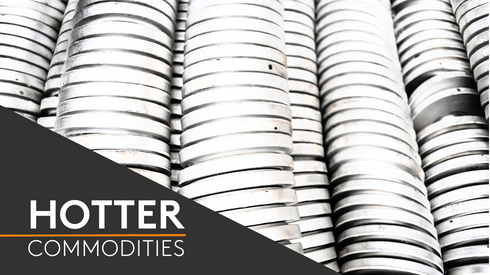The arb window has been closed to buyers in China for some months after Australian alumina prices ticked higher making imports unviable.
Fastmarkets calculated its benchmark alumina index, fob Australia at $312.47 per tonne on Tuesday December 6, having remained rangebound at $310-per-tonne levels throughout November and into December.
Supported also by currency changes from the stronger yuan and weaker United States dollar, some estimated that Australia-to-China freight could now be at around $26-30 per tonne, down from $45 per tonne previously.
The US dollar index has settled at around 106 in recent days, down from a high of 113 in November.
Meanwhile, domestic alumina prices in China have moved upward amid maintenance, environmental closures and restocking activity.
Fastmarkets’ most recent price assessment for alumina metallurgical grade, exw China was 2,750-2,900 yuan ($395-416) per tonne on December 1, up from 2,600-2,800 yuan per tonne on November 17 and from 2,650-2,750 yuan per tonne at the start of the November.
Market participants previously believed alumina prices would need to reach $290-300 per tonne FOB Australia for the arb window to open, which is below current index levels. But with the effect of falling freight rates and the changing domestic situation in China, this is believed to have risen above $300 per tonne to current index levels.
The market will be watching closely for the first spot cargoes to be traded into China to confirm the opening of the arb window.
The lower freight rates were also cited as a factor in the recent drop in the Atlantic premium.
Fastmarkets’ fortnightly alumina index adjustment to fob Australia index, Brazil was calculated at $23.88 per dry metric tonne (dmt) on December 1, little changed from $22.79 per dmt on November 17, but down from $27.68 per dmt on November 3.
“The shipping market is on a slippery slope, which could see the freight difference narrowing further,” one alumina market participant told Fastmarkets.
Other factors included increased shipments out of Jamaica-based alumina producer Jamalco, and higher tonnages available out of Brazil, which eased some of the tightness in the Atlantic region.
A second market participant said freight rates on some routes had fallen by more than $20 per tonne over the past quarter, further supporting the reduction in the premium.




